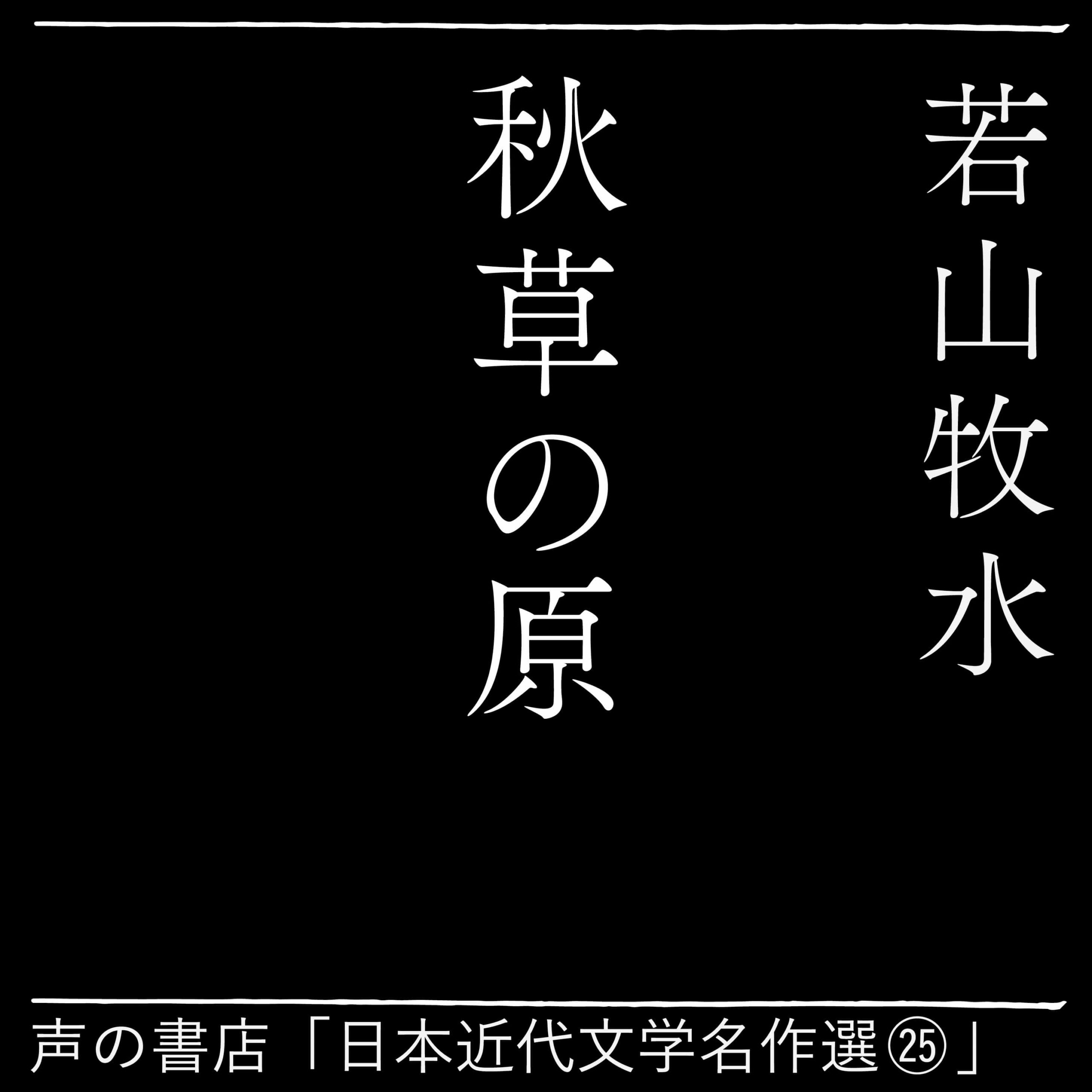
Akikusa no hara(Field of Autumn Grasses)
【Masterpieces of Modern Japanese Literature㉕】
By Bokusui Wakayama
Narrated by Nana Nagao
Buy from Retailers
A short story by Bokusui Wakayama
“The house where I was born was in Tsuboya Village, in the Ishihara district, at the very first household. It was nestled against mountains to the east and north, with a valley stretching out before it. Across the valley stood another towering, rugged mountain. Between our settlement and the neighboring one to the east, there was a short stretch where no houses stood. After crossing a small pass called Wadatōge, my house was the first to appear. From there, the settlement of Ishihara extended sparsely along the valley, stretching westward in a long, narrow line, with a total of about twenty-two households. The stream, flowing down from the west in a long, pale cascade like a waterfall, made a large curve directly beneath my house, forming a deep pool at that point. From the second floor, one could look down upon this great pool in its entirety—a particularly beautiful sight on moonlit nights.
Author : Bokusui Wakayama
Narrator : Nana Nagao
Produced by:Koé no Shoten
Special Thanks:Shigoto, Inc.
Listening Length:00:07:35
Release Date:2024/12/27
*For how to listen, pricing, purchase methods, payment options, and more, please check each distribution site.
ABOUT THE AUTHOR
1885 – 1928
Born in Miyazaki Prefecture. His real name was Shigeru.He graduated from Waseda University’s Department of English Literature. While still a student, he and his classmates published the literary magazine Hokuto.After graduating, he released his first poetry collection, Umi no Koe (“The Voice of the Ocean”). In 1910, he published Hitori Utaeru and Betsuri (“Parting”), which solidified his standing in the world of tanka poetry. The following year, he founded the poetry magazine Sosaku(“Creation”).A lover of travel and sake, he not only wrote tanka but also left behind many works of travel writing and essays, often reflecting a naturalist style.His notable works include Rojō(“On the road”), Keikokushū, Kuro Tsuchi,Yamazakura no uta (“Songs of Cherries Wild and Fair”), and Minakami Kikō(“Minakami travels”).
